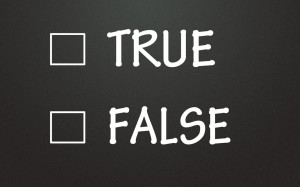 Temporomandibular joint disorder (TMD) usually involves pain in the muscles and joints of your jaw every time your mouth opens and closes. The temporomandibular joint is the hinge that connects the temporal bone of your skull to the mandible (lower jaw). These joints allow movement by being flexible. When you chew, talk, or yawn, your temporomandibular joints are at work. If you suffer from TMD, many parts of daily life can be greatly affected by the discomfort you feel. Your Celina, TX dentist, Dr. Newton, will explain how standing up straight might actually help you lessen your TMD symptoms.
Temporomandibular joint disorder (TMD) usually involves pain in the muscles and joints of your jaw every time your mouth opens and closes. The temporomandibular joint is the hinge that connects the temporal bone of your skull to the mandible (lower jaw). These joints allow movement by being flexible. When you chew, talk, or yawn, your temporomandibular joints are at work. If you suffer from TMD, many parts of daily life can be greatly affected by the discomfort you feel. Your Celina, TX dentist, Dr. Newton, will explain how standing up straight might actually help you lessen your TMD symptoms.
Jaw Pain and Posture
The Academy of General Dentistry (AGD) suggests that if you are experiencing frequent headaches and lower jaw pain, you should take a look at your posture. Poor posture puts your spine in a position that can cause potential stress to the jaw joint. When you slouch, the lower jaw will shift forward in accommodation of that posture. This creates a misalignment of the upper and lower teeth, and backwards movement of the skull on the spinal column. The inflammation from temporomandibular joint disorder is then aggravated.
Stand Up Straight
AGD spokesperson Ludwig Leibsohn, DDS points out that many people don’t realize how much proper posture can affect their oral health. Patients with facial pain often have unbalanced posture that rearranged facial muscle positioning, according to Dr. Leibsohn. This can lead to grooves and bumps developing on the teeth, and causing misalignment in the bite. Oral appliances from your dentist can help realign the teeth and prevent further damage. However, standing up straight is a great preventive measure to avoid needing any TMD treatment in the first place.
Celina, TX Dentist Offers TMJ Relief
If you’re looking for a dentist that can help you with TMJ issues, visit your Celina, TX dentist. To schedule an appointment, call our 75009 dental office. Also, visit the website to view services, print patient forms, or see our smile gallery. We proudly serve new and existing patients in Prosper, Frisco, McKinney, Gunter, Pilot Point, Anna, and the surrounding areas.









Recent Comments